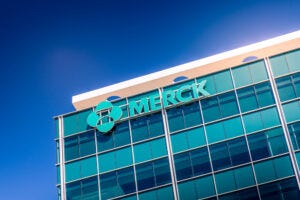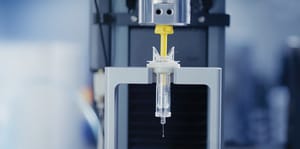Merck & Co. and Daiichi Sankyo will codevelop and market three antibody drug conjugates (ADCs) in a deal that could be worth up to $22 billion.
The deal announced Friday sees Merck pay Daiichi Sankyo $4 billion upfront, with an additional $1.5 billion in contingency payments over the next two years. Additional payments of up to $16.5 billion could be paid based on future milestones.
For the money, Merck will codevelop Daiichi Sankyo’s patritumab deruxtecan (HER3-DXd), ifinatamab deruxtecan (I-DXd) and raludotatug deruxtecan (R-DXd) – three ADC candidates in Phase II, Phase I/II, and Phase I clinical trials, respectively.

DepositPhotos/vzphoto
If successful, Merck will co-commercialize the products, though Daiichi Sankyo will retain the exclusive rights in its native Japan. Daiichi Sankyo will be solely responsible for manufacturing and supply.
“The pioneering work by Daiichi Sankyo scientists has highlighted the far-reaching potential of ADCs to provide meaningful new options for patients with cancer,” said Merck CEO Robert Davies. “We look forward to forging this collaboration to deliver the next generation of precision cancer medicines, driven by our mutual compassion for patients around the world.”
Merck is no stranger to ADCs, a modality that combines the precise targeting characteristic of a monoclonal antibody (mAb) with the high potency of a small molecule warhead (often a chemotherapy drug) using conjugation technology.
The firm has invested in the space through the $2.75 billion acquisition of VelosBio in 2020, which added MK-2140 (zilovertamab vedotin), an ADC consisting of a ROR1-targeting antibody linked to monomethyl auristatin E (MMAE)-containing payload in Phase II trials for various cancers.
Merck doubled down on ADCs through a partnership with Kelun-Biotech forged in 2022 focused on developing nine potential products. However, Merck has handed back development of two of these potential ADC programs to Kelun, Bloomberg reported this weekend.

schedl_b_and_w.jpg?width=100&auto=webp&quality=80&disable=upscale)


schedl_b_and_w.jpg?width=400&auto=webp&quality=80&disable=upscale)





